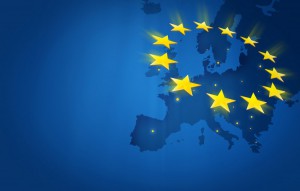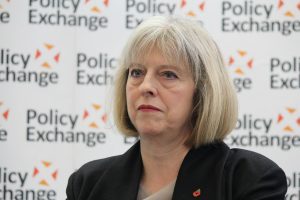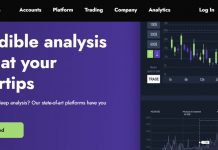EU facing tough winter
 The result of German election was on the surface positive for the EU given that Angela Merkel the hugely pro-EU Chancellor was elected for a fourth term. There is little doubt that Merkel has been hugely influential in driving the EU forward following the financial crisis backed by a Grand Coalition which provided overwhelming support at home.
The result of German election was on the surface positive for the EU given that Angela Merkel the hugely pro-EU Chancellor was elected for a fourth term. There is little doubt that Merkel has been hugely influential in driving the EU forward following the financial crisis backed by a Grand Coalition which provided overwhelming support at home.
Following yesterday’s election that is about to change as Mrs Merkel is going to be hugely preoccupied with domestic matters for the coming months. Support for her main coalition party, The Social Democrats collapsed to a little over 20% and they have decided to go into opposition as they rebuild credibility. The AfD Party gained 13% of the vote which means a Party with far-right views will be represented in the Reichstag for the first time since WWII. Merkel will be faced with a struggle in which she may have to make concessions to both liberal coalition parties but the opposition. Close to one in seven Germans voted for the anti-immigration AfD which was previously anti Eu but has focussed on immigration particularly Islamic immigrants. The recent spate of terrorist incidents together with an upswing in violent street crime has led to a rebellion against Merkel’s “open door “policy.
May on the Brink as Speech fails to bring Unity
 British Prime Minister Theresa May made a significant effort on Friday to unite her party around a set of terms that she hopes will unlock the Brexit process and lead to a successful outcome for the U.K. All she managed to do in fact was to muddy the waters further and weaken her position as leader.
British Prime Minister Theresa May made a significant effort on Friday to unite her party around a set of terms that she hopes will unlock the Brexit process and lead to a successful outcome for the U.K. All she managed to do in fact was to muddy the waters further and weaken her position as leader.
She called for a transition period of, at least, two years to allow business to become accustomed to the new way of dealing with the EU. It is unclear whether EU laws would still apply during this term by May asserted that the U.K would continue with its budget payments during the transition.
Considering several her backbench colleagues had called for Brexit to happen on 31st March 2019 with no extension or transition and that they are also calling for payments to also cease on that day, May took a huge gamble that only time will tell if it is successful.
The weekend press in the U.K. was decidedly negative on her chances with one paper outlining a plot hatched following the election where senior cabinet ministers David Davis and Philip Hammond would back Foreign Secretary Boris Johnson in a bid tom oust May. This could still happen particularly since backbenchers apparently have sufficient signatures to call for a vote of confidence in the Leader.
Error, group does not exist! Check your syntax! (ID: 4)
Monetary policy changes by no means certain
 Rate hikes in the U.K. and U.S look decidedly shaky as policy decisions given the state of the U.K. economy and the political uncertainty driven by Brexit together with the path of inflation in the U.S.
Rate hikes in the U.K. and U.S look decidedly shaky as policy decisions given the state of the U.K. economy and the political uncertainty driven by Brexit together with the path of inflation in the U.S.
It would seem prudent for the FOMC to at least gauge the effect of withdrawal of stimulus in the shape of the reduction in the Fed’s balance sheet before raising rates in December. Inflation is benign at best and FOMC members are virtually queuing up to voice concerns about is continued downward trajectory.
In the U.K, closer study of the speech by Gertjan Vlieghe where he appeared to turn decidedly more hawkish shows that his intentions are entirely data dependent. Although inflation due to a weak currency is looking likely to peak at 3% next month it is growth in wage inflation that will drive his vote. Given the sluggish wage data in the last employment report the next will need to be far stronger when it is released on 18th October to produce a turnaround from last months 7-2 vote on November 2nd.








![Reltex Group Reviews: Explore business opportunities by Trading [reltexg.com]](https://comparic.com/wp-content/uploads/2023/12/image001-218x150.jpg)
![Mayrsson TG Reviews: Why Choose Crypto-Trading with Them? [mayrssontg.com]](https://comparic.com/wp-content/uploads/2023/12/image1-218x150.jpg)








